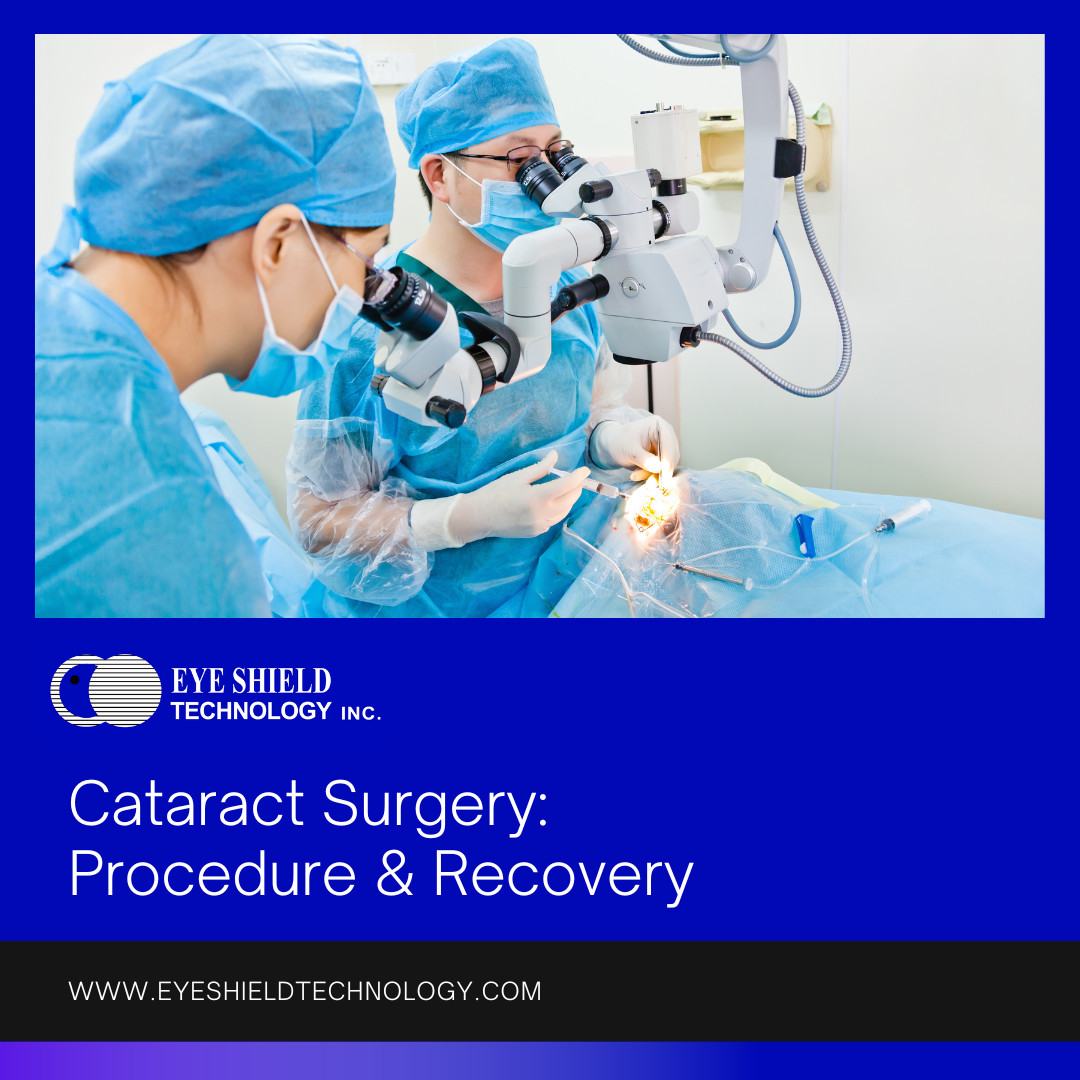Cataract Surgery: Procedure & Recovery

Though we all may dread aging, it is completely inevitable. We may start to notice the decline of our immune systems as well as the strength of our bones, but everyone goes through it eventually. Another unfortunate loss is the quality of our sight, resulting in stronger prescription glasses or the development of cataracts. Cataracts are relatively common amongst older age groups and can make it very difficult to see clearly. The good news is, there is a solution in the form of a surgery. To become better prepared, take the time to research cataract surgery, learn about the procedure and the required recovery period.
What is a Cataract?
A cataract is a cloudy film that grows over the lens of the eye. As we age, the protein and fibers that make up the eye will gradually deteriorate. Risks of cataracts can be higher due to genetics or health oriented problems, but aging is the number one reason. To know if you have a cataract, your symptoms would be blurry or cloudy vision, poor vision at night, faded coloration, and can experience uneven distribution of light.
Surgery
If cataracts begin to affect your quality of life, you might consider surgery to remove them. The surgery consists of numbing the eyes, making a small incision of the cornea, and breaking up the cataract for removal. The surgeon will then insert your new lens, following with the application of a protective eyeshield.
Recovery
When it comes to the recovery period, you can expect some soreness or minimal discomfort. This can be fixed with the use of over the counter prescriptions. Your doctor will encourage you to refrain from driving, wearing makeup, swimming, or most physical activities for a few days. Aftercare will likely include daily drops, and wearing your eyeshield during the day and especially while sleeping. You will need to protect the surgical area to avoid damage or injury. Obey the length of time your surgeon recommends wearing your protective eye shields, as well as the suggestive eye shield type. Eye protection is a priority of ours to help patients protect their improved vision. With any surgery, you must prepare to stay committed to the recovery process. To learn more about what you might need post-op, contact us today!
